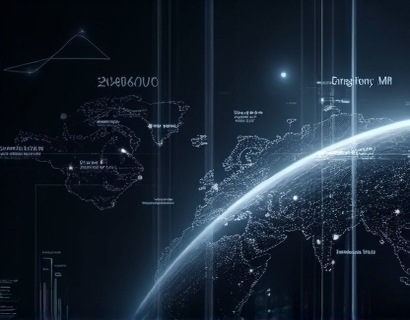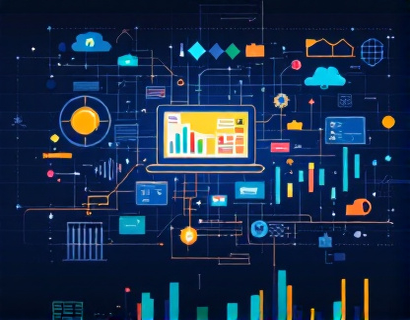Maximize Outreach: Leveraging Cutting-Edge Technology for Targeted Engagement and Growth
In the digital age, the ability to effectively reach and engage with target audiences is crucial for any organization aiming to grow and thrive. The landscape of marketing and outreach has evolved significantly, with advanced software solutions playing a pivotal role in enhancing the efficiency and effectiveness of campaigns. These tools are designed to help businesses and organizations maximize their outreach efforts, ensuring that every interaction is meaningful and contributes to the broader goal of community growth and lasting connections.
The foundation of successful outreach lies in understanding the target audience deeply. Modern software solutions offer sophisticated analytics and data-driven insights that enable organizations to segment their audiences accurately. By analyzing demographics, behaviors, and preferences, these tools help tailor messages that resonate with specific groups, increasing the likelihood of engagement. This level of personalization is key to breaking through the noise and capturing the attention of potential customers or community members.
Advanced Targeting Capabilities
One of the most significant advantages of using advanced software for outreach is the advanced targeting capabilities they provide. These platforms utilize machine learning algorithms to refine target lists continuously, ensuring that campaigns reach the most relevant individuals. For instance, by integrating data from social media platforms, CRM systems, and other sources, these tools can create comprehensive profiles of potential contacts. This holistic view allows marketers to craft highly personalized messages that speak directly to the interests and needs of each segment.
Moreover, these software solutions offer real-time adjustments based on campaign performance. If a particular message or channel is underperforming, the system can automatically reallocate resources to more effective strategies. This dynamic approach not only optimizes resource usage but also enhances the overall ROI of outreach efforts. By leveraging these advanced targeting features, organizations can ensure that their messages are seen by the right people at the right time, maximizing the impact of their campaigns.
Automation and Efficiency
Automation is another critical aspect of modern outreach software. Manual outreach processes are time-consuming and prone to human error, which can hinder the effectiveness of campaigns. Automated workflows streamline tasks such as email blasts, social media posting, and follow-up communications, allowing teams to focus on strategic planning and creative content development. This efficiency not only saves time but also ensures consistency in messaging and timing, which are vital for maintaining audience engagement.
For example, automation tools can schedule posts across multiple platforms, track engagement metrics, and trigger alerts for significant events or milestones. This level of automation helps maintain a constant presence in the minds of the target audience, keeping the organization top-of-mind without overburdening the marketing team. Additionally, automation can handle complex sequences of interactions, such as nurturing leads through a sales funnel, by sending tailored messages at the optimal moments.
Enhanced Reporting and Analytics
Effective outreach is not just about execution; it's also about measurement and optimization. Advanced software solutions provide robust reporting and analytics features that offer deep insights into campaign performance. These tools track a wide range of metrics, from open rates and click-through rates to conversion rates and ROI. By analyzing this data, organizations can gain a clear understanding of what works and what doesn't, enabling them to make data-driven decisions to improve future campaigns.
Visual dashboards and customizable reports make it easy to monitor progress in real-time. These insights can highlight trends, identify areas for improvement, and provide evidence to stakeholders to justify further investment in outreach efforts. Moreover, the ability to compare current campaign performance against historical data helps in setting realistic goals and benchmarks, fostering continuous improvement.
Building Meaningful Connections
While technology plays a crucial role in outreach, the ultimate goal is to build meaningful connections with the target audience. Advanced software solutions facilitate this by providing tools that enhance the quality of interactions. For instance, chatbots powered by AI can engage users in real-time, answering common questions and providing personalized recommendations. This not only improves the user experience but also helps in gathering valuable feedback and insights.
Furthermore, these platforms often include features for managing relationships and nurturing leads over time. By maintaining a database of interactions and preferences, organizations can deliver timely and relevant content that keeps the audience engaged. This approach fosters trust and loyalty, turning one-time interactions into long-term relationships. The ability to track and analyze these relationships over time allows for more targeted and effective follow-up, ensuring that the connection remains strong and beneficial for both parties.
Community Growth and Engagement
The impact of advanced outreach technology extends beyond individual campaigns to contribute to broader community growth and engagement. By enabling organizations to connect with a wider and more diverse audience, these tools help in building vibrant communities around shared interests and goals. Whether it's a local initiative, a professional network, or a support group, the ability to reach and engage with like-minded individuals is invaluable.
Moreover, the data and insights gathered through these outreach efforts can be used to inform and enhance community programs and initiatives. For example, understanding the needs and preferences of a community can guide the development of relevant events, resources, and services. This data-driven approach ensures that community efforts are aligned with the actual needs of the members, maximizing their impact and sustainability.
Challenges and Considerations
While the benefits of advanced outreach technology are clear, there are also challenges and considerations to keep in mind. One of the primary concerns is data privacy and compliance. With stringent regulations like GDPR and CCPA, organizations must ensure that their outreach efforts adhere to legal standards regarding data collection and usage. Advanced software solutions often include built-in compliance features, but it's essential for organizations to stay informed and proactive in managing their data responsibly.
Another consideration is the potential for over-reliance on automation. While automation can greatly enhance efficiency, it's important to maintain a human touch in outreach efforts. Personalized, empathetic communication remains crucial for building genuine connections. Striking the right balance between automation and personal interaction is key to successful outreach.
Future Trends in Outreach Technology
As technology continues to evolve, the landscape of outreach tools is likely to become even more sophisticated. Emerging trends such as augmented reality (AR) and virtual reality (VR) are beginning to find applications in marketing and outreach, offering immersive experiences that can captivate audiences in new ways. Additionally, the integration of natural language processing (NLP) and sentiment analysis will further enhance the ability of software to understand and respond to audience emotions and preferences.
Artificial intelligence will continue to play a central role, with more advanced predictive analytics and personalized content generation. These advancements will not only improve the effectiveness of outreach campaigns but also open up new possibilities for creative and innovative engagement strategies. Organizations that stay ahead of these trends and embrace new technologies will be better positioned to achieve their goals and drive meaningful growth.
In conclusion, leveraging cutting-edge technology for targeted engagement and growth is no longer an option but a necessity in today's competitive landscape. By embracing advanced software solutions, organizations can optimize their outreach efforts, build stronger connections, and contribute to the growth of vibrant communities. The key is to select the right tools, use them effectively, and continuously adapt to the evolving needs of the target audience and the broader market.










































